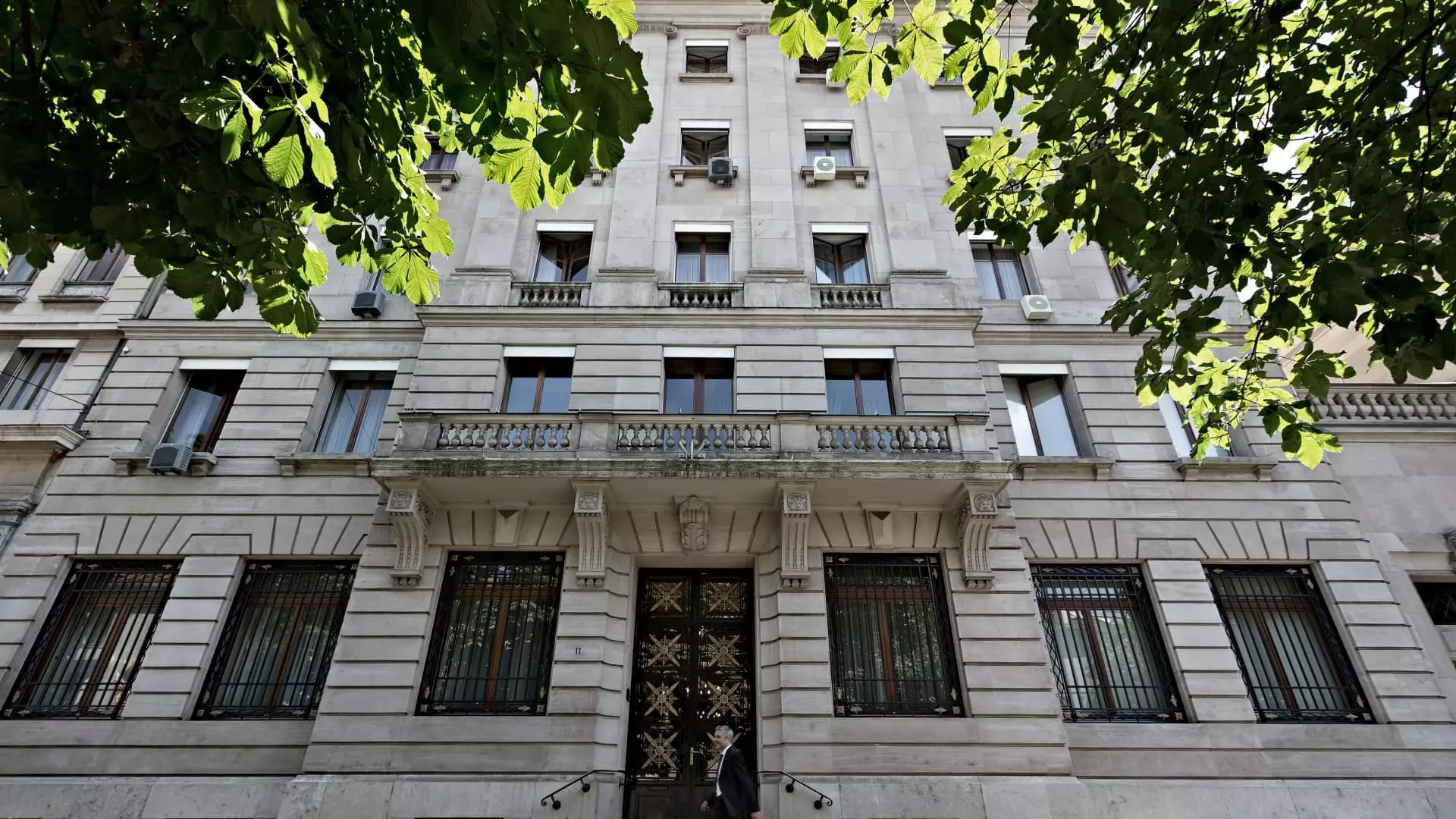Swiss private banking institution Lombard Odier finds itself in a precarious situation after being indicted for “aggravated money laundering.” This significant legal development has been initiated by the Office of the Attorney General of Switzerland (OAG), which has accused the bank and a former employee of orchestrating efforts to obscure funds linked to a criminal organization. This organization is connected to Gulnara Karimova, the daughter of the late Uzbek president, Islam Karimov. With her legal troubles coming to light, the accusations against Lombard Odier highlight the potentially extensive implications for the banking sector and its regulatory frameworks.
According to the OAG, investigations dating back to 2016 unveiled that between 2005 and 2012, around the time Karimova would have engaged in suspicious financial activity, significant funds might have flowed through Lombard Odier’s accounts. This points to a potentially systematic approach to facilitating the laundering of money that was reportedly derived from illicit sources, drawing severe scrutiny not only on the bank’s operational integrity but also on the broader compliance culture prevalent in the financial services industry.
In response to these serious claims, Lombard Odier has taken a firm stance, asserting that the allegations are “unfounded and without merit.” The bank emphasized their commitment to transparency and diligence, stating that they had internally reported suspicious activities to Swiss authorities, framing their actions as proactive rather than reactive. This narrative endeavors to distance the institution from the claims leveled against it and portrays a willingness to cooperate with ongoing investigations. Their intention to mount a vigorous defense underscores the ramifications of this indictment, which not only threatens their reputation but could significantly impact client trust and operational viability moving forward.
However, the assertion of innocence may not be enough to appease the pressures stemming from regulatory scrutiny. The long-standing reputation of Lombard Odier, founded in 1796, is now shadowed by these allegations, marking a critical juncture for the institution in preserving its historical legacy while ensuring that compliance and ethical standards are upheld.
This case can serve as a catalyst for a broader examination of transparency and governance within banks, especially in jurisdictions known for their banking secrecy. It shines a spotlight on the continuous struggle between maintaining client confidentiality and ensuring adherence to anti-money laundering regulations. As banks become more entwined with global financial networks, they must remain vigilant in thwarting attempts to exploit loopholes for illicit profit generation.
As the situation evolves, the outcome of the trial will likely redefine not only Lombard Odier’s operational landscape but the protocols that govern the Swiss banking system as a whole. With possible implications for stricter regulatory oversight and changes in compliance practices, this situation necessitates a critical reevaluation of how private institutions handle suspicious transactions and their accountability in the event of financial misconduct.
As Lombard Odier prepares to contest the allegations against it, the outcome will reverberate far beyond its own corridors, potentially altering the trajectory of banking practices and regulations in Switzerland and beyond. The entire industry must remain attentive to this landmark case, understanding that the pursuit of integrity in banking is an ongoing endeavor that requires unwavering diligence and commitment.

